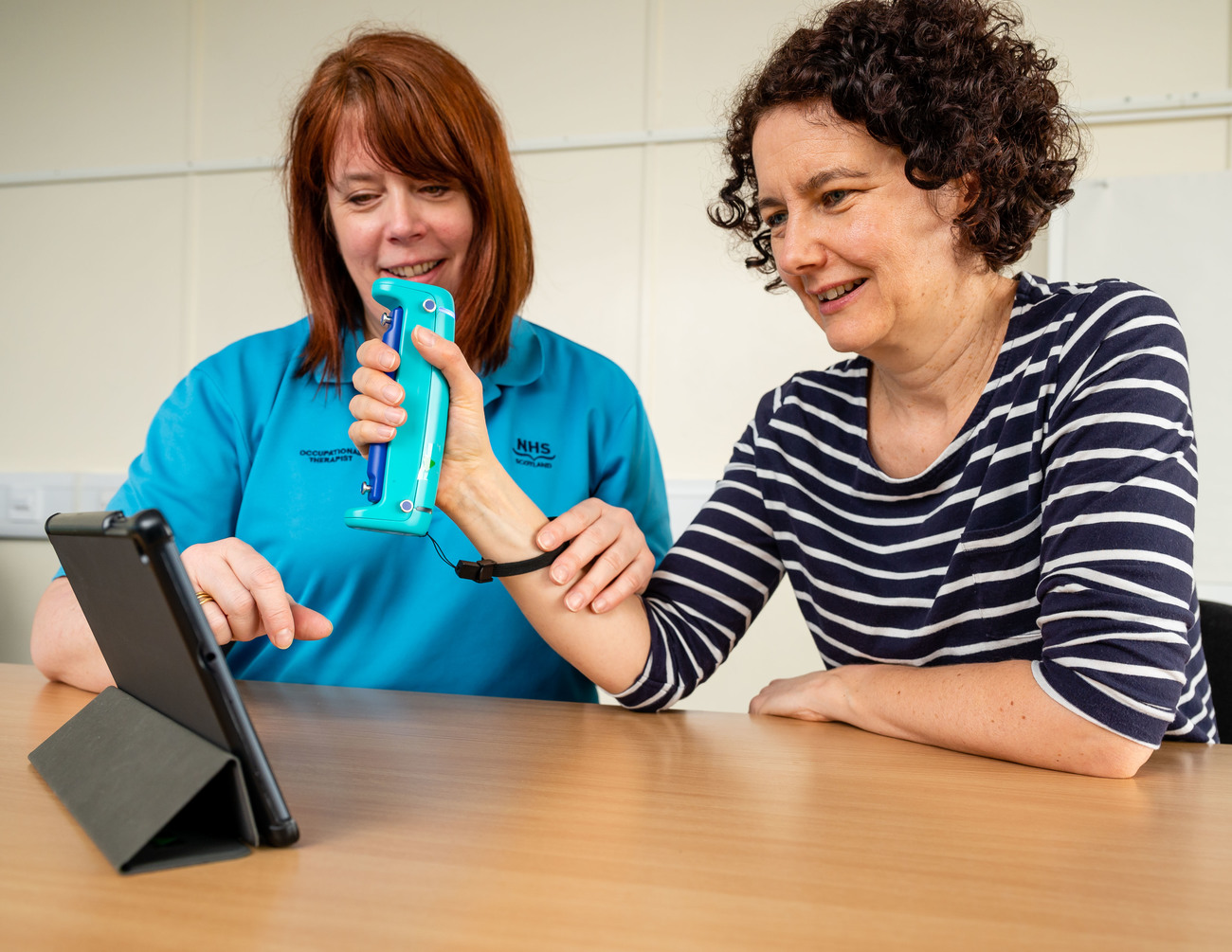
Sarah Bowyer
07 June 2024
•2 min read

My career in dietetics and beyond
As I set out on my career journey, my guiding compass was aimed at finding a people-orientated vocational career. I wanted to prioritise supporting others in achieving their best health and wellbeing at each destination rather than landmarks in my own career. Indeed, many of the roles I’ve enjoyed were not even in existence when I became a registered dietitian 30 years ago. That includes my current role as a project officer in the Community Engagement and Transformational Change Directorate at Healthcare Improvement Scotland.
So how did I get here?
Throughout my career, I’ve created a map of my personal journey. I’ve worked in the public, private, and third sectors across the UK. My work has mainly focused on primary care, public health, and health inequalities in communities in both the NHS and higher education institutions.
I agree with the following statement that sums up the role of a dietitian:
“Academic qualifications aren’t everything. You’ll need to be interested in science and food and people's lifestyles. You'll need excellent communication skills and be able to explain complex things simply.”
This statement is reflected in my career path. On the theme ‘from classroom to clinic and beyond’, it has been my return to the classroom, studying for academic qualifications, then applying my learning and research that has taken me each time to a new ‘beyond’.
Achieving a master’s in food policy led to work in school food policy in Leeds. My work included training and support to implement the National School Food Standards in England. I also contributed to research investigating the uptake of free school meals and the co-creation of a toolkit to help increase the uptake of the entitlement.
I then moved to Scotland. My career choices were driven by my people-oriented skills, honed during past dietetic roles, that concentrate on the complexities of ‘People, Health and Place’. I started in a public health dietetic role with NHS Highland aimed at a community development approach to health and wellbeing. I then returned to the classroom to undertake doctoral research. My research was focused on the involvement of people, both patients and staff, in the improvement and sustainability of rural health services. It was through this work that I came across the Scottish Health Council.
I now find myself putting my research into practice in my project officer role within the Community Engagement and Transformational Change Directorate at Healthcare Improvement Scotland. This is the operational and delivery arm of the Scottish Health Council. Our purpose is to support people's effective engagement and participation in the development and delivery of health and social care services.
How do my experiences as a dietitian bring skills to my work in community engagement?
In my role at Healthcare Improvement Scotland, I work to help improve engagement practice in Scotland’s health boards within the context of national policy and strategy for public and patient involvement.
Dietitians need to meet the 15 standards of proficiency, governed by the Health and Care Professions Council. Applying these standards enables me to carry out my project officer role. Some may seem obvious, such as the ability to communicate effectively, but other examples illustrate how others are key to my role.
A good example is standard 5, “Recognise the impact of culture, equality and diversity on practice and practise in a non-discriminatory and inclusive manner.” As a practitioner, my natural style has always been ‘person-centred’, with a ‘with and for’ rather than an ‘at and to’ approach. This aligns too with our Healthcare Improvement Scotland aim that “A human rights based approach is embedded and the voices of people and communities in Scotland are at the heart of redesign and improvement” When providing support with a therapeutic diet, my focus has always been that the person is an expert by their own experience and has equally valuable information to share.
Another example is my key role in developing, establishing, and maintaining links with NHS, integration authorities, and patient and public networks. I contribute to planned communications activity to maximise opportunities and facilitate and share best practice. I also work to support the effective participation of other organisations.
These actions neatly fit standard 8, “Ability to work appropriately with others,” which I have fulfilled in many ways throughout my 30-year career. These include multidisciplinary work, cross-sector work, and working with different age groups and various communities.
So where to next? The Beyond
My role at Healthcare Improvement Scotland has introduced me to the Scottish Government Improvement Framework for Public Services. I am now applying quality improvement methodology in a part-time dietetic role with NHS Highland. This is another story about a new path in my journey.
For me, the beauty of dietetics is that it is a career with many alternative routes. One route is a clinical career, progressing in a specialist area and progressing through the Agenda for Change pay bands. But as my experience shows, you can apply your dietetic skills and follow other routes, too.
That same compass still guides me more than 30 years on. The ability to put my learning into practice to support and facilitate others brings me fulfillment each working day. All the while, my career path continues to unfold. As a firm believer in lifelong learning, maybe it will lead me back to the classroom. Whatever lies beyond, I plan to ‘eat well’ along the way.
Sarah Bowyer is a project officer in the Engagement Practice and Improvement Team within the Community Engagement and Transformational Change Directorate at Healthcare Improvement Scotland.

Explore our careers
Looking for your next career opportunity? Explore our careers to find out how you can apply your skills in a healthcare role.